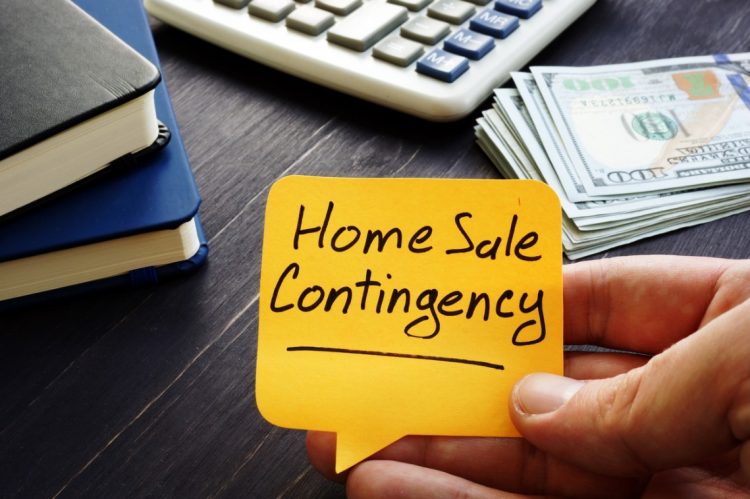When selling a home, you want everything to go smoothly. In many real estate transactions, that is exactly what happens. However, there are times when the whole process can become a royal disaster.
The odds of having an unpleasant experience increase when homeowners don’t make sound decisions.
One such scenario occurs when sellers accept a home sale contingency. A home sale contingency will allow buyers to back out of a sale if they cannot sell their current home. Home sale contingencies become far more common in buyer’s markets when sellers struggle to find a buyer.
Finding a home sale contingency is almost unheard of in a hot seller’s market. We will examine what a home sale contingency clause is and how it works. For most sellers accepting one will be a significant mistake.
What is a home sale contingency?
A home sale contingency is a clause in a real estate contract that allows a buyer to sell their existing home before proceeding with the transaction.
Essentially, it means that the purchase of the new home will only go through if the buyer’s current home is sold within a certain amount of time.
How does a home sale contingency work?
A home sale contingency works by giving the buyer time to sell their current property before they can purchase a new home. The contingency clause is typically included in the purchase agreement, and it specifies that the sale of the new home will only be completed once the buyer’s current home has been sold.
The contingency period usually lasts for a specific time frame, such as 30, 60, or 90 days, during which the buyer must sell their existing home.
If the buyer fails to sell their home within the specified period, they can either request an extension of the contingency period or back out of the sale entirely. This means that the seller may have to relist the property and start the process all over again, which can be frustrating and costly for them.
Some sellers will be more willing to accept backup offers in this situation. A contingent sale could easily find its way back onto the market.
What are the downsides of a home sale contingency for sellers?
Accepting a home sale contingency can be a significant mistake for sellers in a real estate transaction.
One of the biggest downsides of this contingency clause is that it can significantly delay the sale of the property. The time frame the buyer needs to sell their current home means a seller can wait months to sell their property.
During this time, the seller may miss out on other potential ready, willing, and able buyers. If the market isn’t favorable to sellers, the property’s value may decrease, causing them to lose money if the sale falls through.
Another downside to accepting a home sale contingency is that it leaves the seller vulnerable. If the buyer cannot sell their current home within the specified period, they can back out of the sale entirely, leaving the seller with the burden of relisting the property and starting the process all over again.
It is one of the reasons pending sales fall through.
The most significant issue is sellers lose complete control of the process. They will rely on their buyer to do what is necessary to sell their property, including pricing and marketing it correctly.
When does a home sale contingency make some sense?
While accepting a home sale contingency may not be ideal for sellers, there are certain situations where it can make sense. One scenario is when it is a buyer’s market, and sellers struggle to find a buyer. In this case, accepting a home sale contingency may be the only way to secure a sale.
Another situation where a home sale contingency can make sense is when the buyer’s property is more saleable than the seller’s.
For example, if the buyer’s home is in a highly desirable neighborhood or has more modern amenities, it may be easier to sell than the seller’s property. In this case, the seller may feel more comfortable accepting a home sale contingency as they have more confidence in the buyer’s ability to sell their property quickly.
Final thoughts
It’s essential for sellers to carefully consider their options and consult with a local real estate professional before accepting a home sale contingency.
While it may seem like a good option in some cases, it can also lead to significant delays and uncertainty in the sale process.












